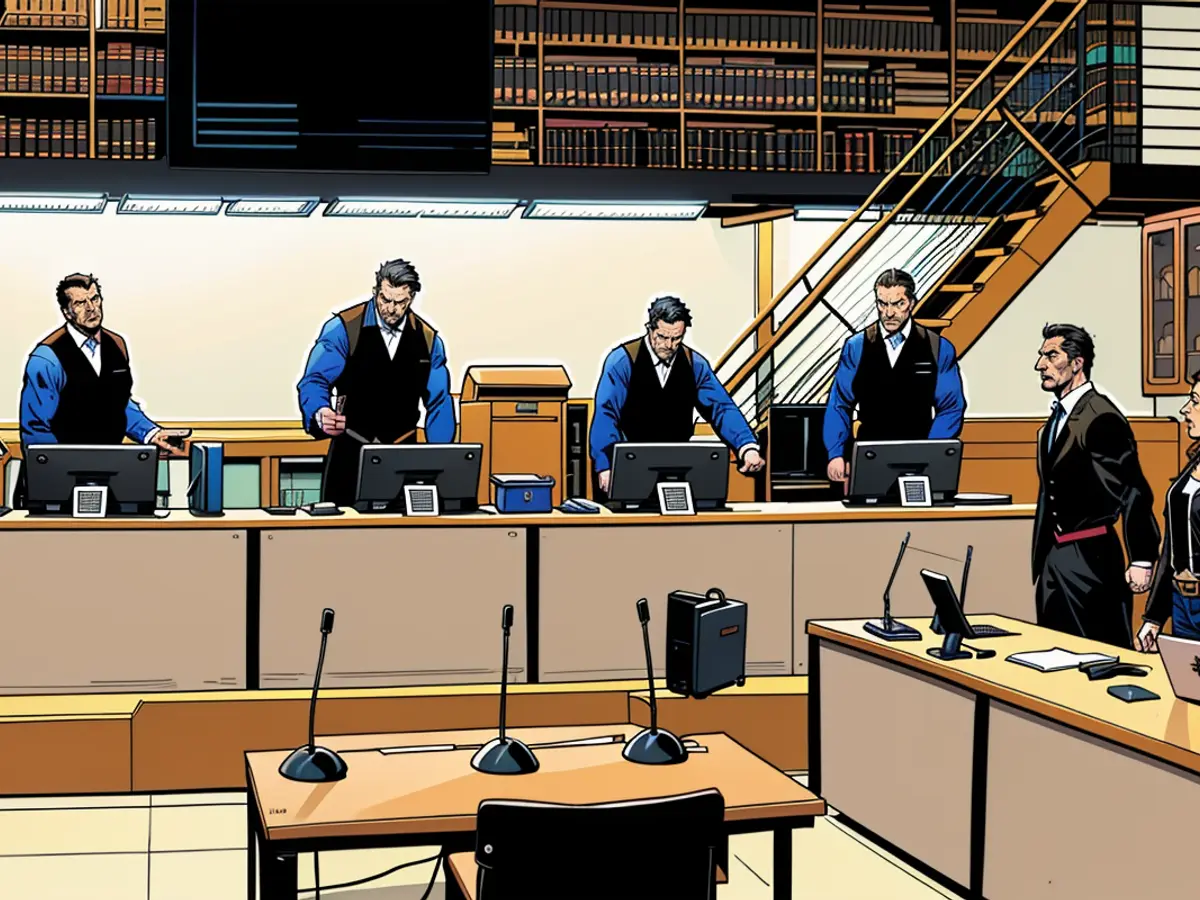Attack on asylum seekers' home - Acquittal in second trial for fatal arson attack
The assistance trial for a fatal arson attack on a refugee home in Saarlouis has come to an end with an acquittal of the defendant. A psychological contribution of the 55-year-old to the arson attack 33 years ago could not be proven in the proceedings, stated the presiding judge Konrad Leitges during the judgment pronouncement at the Higher Regional Court in Koblenz.
Important sentence the evening before the act
According to the court, the defendant confirmed the already convicted perpetrator of his decision to commit the crime. However, a clear intent that he specifically instigated him to commit arson was not proven.
In the proceedings, a statement of the defendant the evening before the arson attack was crucial. The prosecution had accused the 55-year-old of telling the already convicted perpetrator and a third member of the former Neo-Nazi scene in Saarlouis: "Something like that should happen here too."
In various interrogations, the main witness stated that the defendant meant "something" figuratively. He expressed himself several times, including during his testimony in court, that he could not remember the formulation "burn". Additionally, he had deleted the word "burn" from police interrogation protocols.
For assistance to murder, a statement must clearly indicate an offensive direction, as the judge stated. For a premeditated instigation to arson, the sentence was not sufficient. It was not proven that with "something" a arson attack was meant. The main witness had interpreted the words as a reference to riots and disturbances against refugee homes.
The acquitted person, according to the Federal Prosecutor's Office and various witnesses, was a leading figure in the Neo-Nazi scene of Saarlouis at the time. He is still convinced of Nazi ideology, it was stated in the statement of the presiding judge.
Arson attack from 1991
At the arson attack in September 1991, the then 27-year-old refugee Samuel Yeboah from Ghana in West Africa died. Two other residents jumped out of a window and injured themselves. 18 other residents were able to escape unharmed. The perpetrator was sentenced to imprisonment, but the judgment is not yet legally binding.
The 55-year-old was charged with complicity in murder. His defense had demanded acquittal, while the Federal Prosecutor had demanded a sentence of six and a half years. Defense attorney Wolfgang Stahl said after the acquittal that the basis for the suspicion against his client from the beginning had been very thin.
Reactions to acquittal
"We are firmly convinced that the Federal Prosecutor's Office will appeal," said a representative of the plaintiff. The judgment will then be contested, it was further stated. The plaintiff does not consider it proven that the defendant's sentence did not refer to arson attacks.
- Despite the acquittal, the Federal Prosecutor's Office expressed their intention to appeal the ruling, focusing on the belief that the defendant's sentence did imply a reference to arson attacks.
- The arson attack in Saarlouis, which occurred in September 1991, resulted in the tragic death of Samuel Yeboah from Ghana, a 27-year-old refugee residing in a home for asylum seekers.
- The trial for the excessive involvement of the defendant in the arson attack led to intense scrutiny of his ties to the Neo-Nazi scene in Saarlouis during East Germany's time.
- The primary witness in the trial interpreted the defendant's words as a reference to disruptive actions that might target refugee homes, rather than an explicit call to commit arson.
- The defendant's alleged involvement in the orchestrated crime stemmed from his position as a prominent figure within the Neo-Nazi scene in Saarlouis, as confirmed by various witnesses during the trial.
- The defendant's acquittal tinged the ongoing process at the Higher Regional Court in Koblenz with a sense of focus on the complexity of assigning guilt in Neo-Nazi-related crimes and extremism in Germany.
- The Higher Regional Court in Koblenz's ruling, which acquitted the defendant despite his association with the Neo-Nazi scene, marked a significant moment in addressing the challenges of proving involvement in hate crimes within Germany's legal system.
- Defending against the charges of complicity in murder, the defendant's legal team argued that the basis for their client's initial suspicion was tenuous, ultimately leading to his acquittal in the trial.








